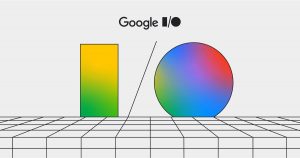
Google to embed its ‘Gemini Nano’ in-device AI model into Chrome desktop
Google’s I/O event this year was — once again — all about AI. Among those, perhaps the most eye-catching one was ‘Gemini Nano’, an in-device light version of Google’s powerful Gemini AI model. Additionally, Google also announced, that this Nano model would directly integrate within the Chrome desktop client, marking a major shift for Chrome.
This announcement coincides with other advancements revealed at Google I/O 2024, such as the introduction of faster Gemini models and expanded capabilities for the Gemma variant, a smaller, less resource-intensive AI model. Notably, the on-device functionality of Gemini Nano in Chrome offers an additional advantage for developers. Unlike cloud-based AI models, Gemini Nano allows developers to work without relying on an internet connection.
By embedding the lightweight Gemini AI model into Chrome, developers gain access to a range of advanced functionalities that can be seamlessly integrated into their web applications. Starting with Chrome version 126, Gemini Nano will be embedded directly within the desktop client. This grants developers the ability to leverage on-device AI functionalities, empowering them to integrate features like text generation into their web applications. Google envisions this as a game-changer, particularly for smaller development teams.
By providing access to Gemini Nano, Google also eliminates the complexities associated with traditional AI implementation, including the time-consuming process of prompt engineering (which involves crafting specific instructions for the AI model to understand the desired task) as well as the need for fine-tuning the model to perform a specific function and the ongoing management of infrastructure limitations. Developers can now utilize high-level APIs (Application Programming Interfaces) to perform tasks like translation, captioning, and text transcription directly within Chrome.
Google attributes the successful integration of Gemini Nano into Chrome desktop to recent advancements in WebGPU and WebAssembly (WASM) support, which ensure optimal performance and efficiency, enabling AI-powered features to run smoothly across a wide range of hardware configurations. By leveraging these technologies, Google aims to deliver a seamless browsing experience enriched by AI-driven capabilities.
Google’s decision to integrate Gemini Nano into Chrome may also prove to be a boon for everyday users. According to reports, the company is leveraging the model’s text generation capabilities to introduce a user-focused feature called “Help Me Write.” This functionality offers real-time writing assistance directly within Chrome. Imagine composing a product review, crafting a social media post, or filling out a customer feedback form – “Help Me Write” will be readily available to suggest improvements and streamline the process.


